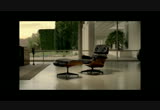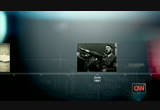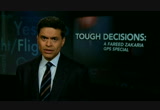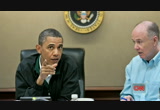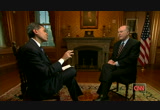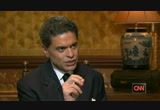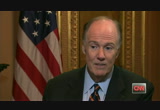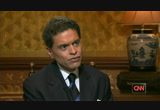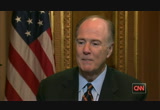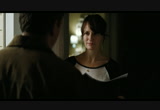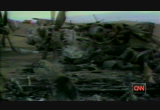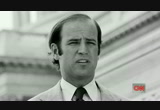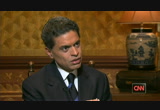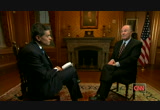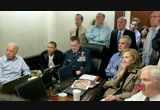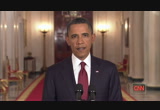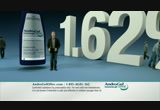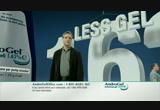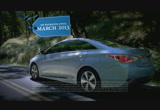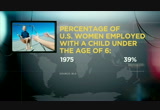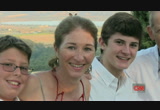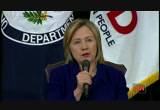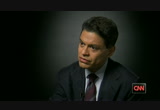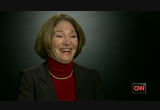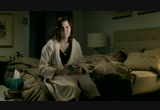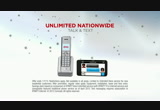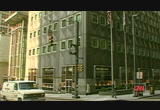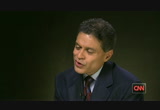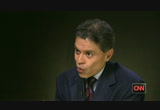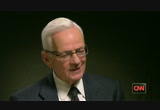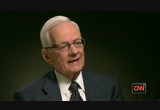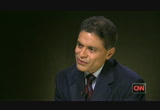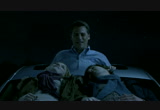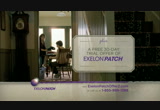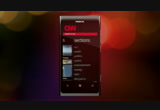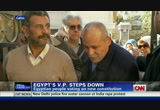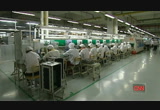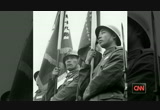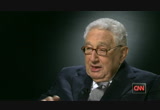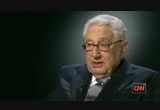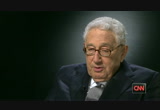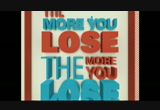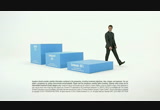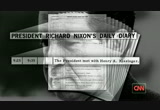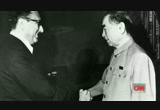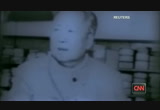tv Fareed Zakaria GPS CNN December 22, 2012 8:00pm-9:00pm PST
8:01 pm
the great french writer albert said, life is a sum of all your choices. we're all defined by the decisions we make every day, and we make hundreds of them. paper or plastic, chickening or fish, most are mundane and require little thought. but others are agonizing. and then there are decisions made my leaders, some of which have changed the course of history, for better, and some for worst. july 4, 1776, the decision to declare independence. january 1863, abraham lincoln's decision to imans kate all persons held as slaves. june 1941, adolf hitler's decision to invade the soviet union. august 1945, president truman's decision to use an atomic bomb
8:02 pm
against japan. tonight, we'll examine the process of making a tough decision. we'll hear about major decisions on an international stage. about corporate decisions to and personal ones. from taking down the most wanted man in the world. >> the president turned to us and said i've made my decision. we're going to go with the raid. write up the orders. >> to giving up a dream career. >> it was a sense of, opt unreality, almost p almost a sense of, i'm not really sure i know high i am. >> to uprooting a company culture. >> some people actually quit. >> to opening the door to a closed society. >> this is like a spy thriller. >> each of my guests have wrestled with a difficult choice. they'll take us through their deliberations, their fears and how they made their tough decisions.
8:03 pm
at 11:00 p.m. on may 1, 2011, two black hawk helicopters, 23 navy s.e.a.l.s, a translator and a dog named cairo took off from jalalabad, afghanistan. the mission -- to kill the world's most wanted made, osama bin laden. >> the death of bin laden marks the most significant achievement to date in our nation's effort to defeat al qaeda. >> most have heard the incredible details of the bin laden compound raid, but little has been revealed about the intense, months' long dl deliberation that led to the decision to act. so how was the decision made? who was told? how did they weigh the options? tonight, we will ask the man tasked by the president to synthesize the intelligence, analyze the assessments and run the decision-making process, to act in a sense as gatekeeper of this monumental decision.
8:04 pm
i sat down with national security adviser tom donilon in secretary of war suite of the eisenhower executive office building. >> when you come into the white house, has the trail for osama bin laden gone cold? >> when we came into office, the beginning of 2009, the trail had gone cold. we really hasn't had a good case to his whereabouts since he was at tora bora in 2001. >> so what does the president say at that point? he tells leon panetta, get bin laden. >> in the spring of 2009, the president asked to see me and leon panetta, and rahm emanuel, and ron leiter, head of the national terrorism center and he said, i want to re-energize the hunt for osama bin laden. i want you to make this your top priority. i want to get reports every 30 days. >> august 2010, leon panetta comes back to the president with some information. correct? >> that's correct. in the summer of 2010, the cia
8:05 pm
led by leon panetta came to us and indicated that they had evidence that was interesting to them at in point, that led them to believe there was a high-value person of interest at jalalabad, pakistan. >> at what point did it become clear that it was osama bin laden? >> you say likelihood, this is why that was a tough decision. even at the point it was a wholly circle case. there was not direct evidence you could present to the president at that point saying we guarantee you, we have direct evidence that osama bin laden is at this compound. >> one of the things you decided to do, and it must have been the president and you were, a very small number of people, to limit access to this information, and decision-making, to a very tight
8:06 pm
circuit that excluded the secretary of state, the secretary of defense. take us through that decision-making. >> there was a decision made because of the extreme sensitivity about this to have, at the first, in the first instance, have the analytical people. really, the sole team working on this. >> the cia? >> at the cia. >> then it moved when we made decisions about going operational. that is, the need to bring in the special forces that expanded it a bit, but the president was insistent that it be very closely held, that we have the people involved in every stage that were necessary to be involved. why was that? security was incredibly important. and i think it was a testament to the serious of purpose, and frankly to the seriousness of purpose and frankly to the character of the individuals involved in this that not a thing linked from august 2010 until may 2011. >> that's an extraordinary thing. by keeping it that secret, you were able to in a sense slow down the clock so that you had
8:07 pm
time to accumulate evidence and make a decision. >>eah. i think -- and that's an important aspect generally of policy making in the national security realm. and that's the balance, obviously, between transparency and secrecy and confidentiality. for an operation like this where operational security is absolutely essential, keeping it small, keeping it to a group that has an absolute need to know does give the president and discussionmakers more space and more time to go through the offense. and in this case, of course, we considered every aspect of this. and we were able to do so because we did have exceptional operational security. >> you also had to make a decision about when to act. as you said, there was never a moment where you had overwhelming evidence. and so how did you make that decision? when did it seem that you had achieved a kind of critical balance of evidence? >> yeah. there was a point reached where the intelligence professionals came and made a determination
8:08 pm
and put it to the president that we're not likely through whatever means we have available to us to gain anymore information that's going to make this anymore certain. >> so now you have to decide what to do. were all options carefully considered? >> they were carefully considered. and there were really several options, as you said. don't act because the evidence isn't strong enough and the risks are too high. we can go through that. have a standoff attack. work jointly with the pakistanis on an operation, or have a unilateral raid. at the end of the day, the reason i think that the president did the unilateral raid, reasons were several fold. number one, it allowed certainty. that there wouldn't be a debate after the operation as to whether or not, in fact, osama bin laden had really been taken out. we would have proof. and we just wouldn't have bought the united states a propaganda war around this. second, it also allowed us to
8:09 pm
limit the potential for casualties of noncombatants. and we discovered obviously during the course of the raid that there were close to two dozen noncombatants at the compound. three, it allowed us to limit casualties with respect to people around the compound, completely innocent, and the president had a lot of confidence in that option for this reason -- although it was 50/50, let's say. there was only a circle case. he had 100% confidence in the special forces, that would do this. the fact that they would have the ability to get to the target, do the operation and get back. because he had tremendous amount of experience with them. and this obviously is a unique american asset and a team of people who have been doing this for years in iraq and afghanistan and around the world. coming up, inside the situation room. the moments leading up to the final call. >> the president said thank you and you'll have my decision tomorrow. he got up and walked out. [ male announcer ] citi turns 200 this year.
8:10 pm
in that time there've been some good days. and some difficult ones. but, through it all, we've persevered, supporting some of the biggest ideas in modern history. so why should our anniversary matter to you? because for 200 years, we've been helping ideas move from ambition to achievement. and the next great idea could be yours. ♪ gives you 1% cash back on all purchases, plus a 50% annual bonus. and everyone likes 50% more... [ midwestern/chicago accent ] cheddar! yeah!
8:11 pm
50 percent more [yodeling] yodel-ay-ee-oo. 50% more flash. [ southern accent ] 50 percent more taters. that's where tots come from. [ male announcer ] the capital one cash rewards card gives you 1% cash back on every purchase plus a 50% annual bonus on the cash you earn. it's the card for people who like more cash. 50% more spy stuff. what's in your wallet? this car is too small.
8:12 pm
for nearly a year, only a handful of people closest to the president knew that he was weighing a decision to kill or capture osama bin laden. the risk of a leak was deemed so great not even the secretaries of state or defense were in the loop until the final weeks. worries about the huge potential downside loomed large. no one wanted a repeat iran hostage crisis desert one debacle. one of the delta forces first that turned into a deadly inferno when a helicopter and
8:13 pm
plane collided. here now, more with my interview with the man tasked to run the decision-making process, president obama's national security adviser, tom donilon. >> what were the risks? there were obviously risks to the forces carrying out the operation. there was a risk of failure and its impact on the united states and its face to the world. there was risk to the pakistani relationship. we were undertaking a unilateral action in pakistan to go after osama bin laden. all those risks were on the table and had to be considered by the president and the principals that made their recommendation. i will tell you this in line with your question. there was a lot of history present in the room. secretary gates was national security during desert one. i was an aide to carter during desert one. it was clearly on people's minds. also what was in the room, it's interesting, was one of the aspects that came out of desert
8:14 pm
one and that was a formation of a unified special operations forces command. the very troops, the forces here that would carry out this operation that had become such a unique asset of the united states. >> the president made one sdix, informed, it seems, to me, by that history. he asked for two backup helicopters. >> he asked for enough assets that the united states could get in and out of on its own of the abbottabad compound. >> now take us to that moment or a series of meetings where we now know that vice president biden voiced reservations about an actual raid as opposed to a missile strike. secretary gates did. some key military leaders did. what was that like? was it a situation where the majority of the president's advisers were aurging him urging him not to do this? >> it gets to this point, there
8:15 pm
were two dozen interagency meetings leading up to this point. but on the thursday before the raid, it was the final principals committee meeting. a national security council meeting with the president and the chair. having a discussion about -- and receiving the final briefing on the various operations, the various alternatives. and he did ask each of the members, senior members of the national security team, for their views, and 2 wit was a ro with divided counsel. and at the end of the day, the president said thank you, you'll have my decision tomorrow and he got up and walked out of the situation room, up the stairs and across the famous colonade and the decision rested with him. one person on behalf of 300 million american making that decision. >> were you nervous grappling with this issue? how much did it weigh on you? how much did you take it back with you home? how much was it a sort of all-consuming issue? >> you know, we had -- we were doing the rest of our business as well. it was part of the operational security. that is the style of this president. it was very methodical. very organized.
8:16 pm
moving through the issues one by one. and of course we thought about it a lot. obviously, he thought about it a lot, having to make the final decision, and he did that night and again the next morning around 8:00 i heard from him and he said, meet me in the diplomatic room. we met him and he turned to us and said i made my decision. we're going to go with the raid, write up the orders. >> and at that point, what do you do? >> i returned to my office, drafted the orders and signed them. >> and then how was it operationalized? >> we had developed prior to that literally a playbook of every step that would have to be taken from the point that the president made the decision, and we begin to implement that. we came into the office on sunday morning and we began a 10 1/2-hour principles meeting. >> and you were watching the operation? >> yes. >> when the beginning began, how nervous were you?
8:17 pm
>> i don't know nervous. focused i think is a better way to describe it. >> was there any -- the helicopter malfunctioned. >> wre yes, of course, the helicopter did malfunction. the tail hit a wall and it had a hard landing, but contingencies had been planned for, including that contingency. and the operation just went forward without missing a beat. >> when did you breathe a sigh of relief? when did you know the mission was successful? >> nobody breathed a sigh of relief, including the president, until we heard that all the forces were back across into afghan air space and they were out of pakistan air space. >> the united states has conducted an operation that killed osama bin laden, the leader of al qaeda. and a terrorist who's responsible for the murder of thousands of innocent men, women and children. >> when you think about why the president made this decision, why this focus, why take this risk, this operation, is because it is important for the united states to do what it says it's
8:18 pm
going to do. and i'd like to think that if there had been a c-span covering of the activities of the american government leading up to and through the successful completion of the raid against osama bin laden, the american people would have been proud. >> up next, a very different set of parameters leading to a tough decision. it's a choice that millions of women face in the course of their lives. >> the stress was just overwhelming. i couldn't live up to that responsibility. who have used androgel 1%, there's big news. presenting androgel 1.62%. both are used to treat men with low testosterone. androgel 1.62% is from the makers of the number one prescribed testosterone replacement therapy. it raises your testosterone levels, and... is concentrated, so you could use less gel. and with androgel 1.62%, you can save on your monthly prescription.
8:19 pm
[ male announcer ] dosing and application sites between these products differ. women and children should avoid contact with application sites. discontinue androgel and call your doctor if you see unexpected signs of early puberty in a child, or, signs in a woman which may include changes in body hair or a large increase in acne, possibly due to accidental exposure. men with breast cancer or who have or might have prostate cancer, and women who are, or may become pregnant or are breast feeding should not use androgel. serious side effects include worsening of an enlarged prostate, possible increased risk of prostate cancer, lower sperm count, swelling of ankles, feet, or body, enlarged or painful breasts, problems breathing during sleep, and blood clots in the legs. tell your doctor about your medical conditions and medications, especially insulin, corticosteroids, or medicines to decrease blood clotting. talk to your doctor today about androgel 1.62% so you can use less gel. log on now to androgeloffer.com and you could pay as little as ten dollars a month for androgel 1.62%. what are you waiting for? this is big news.
8:20 pm
8:23 pm
anne-marie slaughter headed one of america's most important jobs. >> the first thing i would say -- >> as director of policy planning at the state department, she worked extremely closely with secretary of state hillary clinton, traveling the world and providing strategic anil sis and advice on the day's most complex and urgent international issues. she was the first ever woman policy planning director. it was, she said, the job she had always wanted. >> no one is happier than i am that this day is here. >> but then slaughter just gave it up. quit. turned in her resignation letter to secretary clinton and left washington. she resumed her princeton professorship and life in new jersey with her husband and two teenage sons. in the wake of her departure, slaughter wrote a cover story
8:24 pm
for "the atlantic magazine," "why women still can't have it all." within days, the piece became the most read in "the atlantic's" history. tonight, she takes us behind that personal decision that became a raging public debate. >> explain the intensity of that kind of job, because it's really much more than what many people think. this is a more intense job than very senior jobs in the private sector. >> it's certainly comparable. it's an assistant secretary job, which means you're on pretty much all the time. you're the head of the secretary of state's private think tank. that means you cover the entire world, just as she does. and you're on for everything she needs you to do. and every sort of -- the longer-term planning and you work pretty much round the clock. >> so you're working probably six days a week? >> absolutely. now, i commuted back every weekend, because i had to be
8:25 pm
with my kids in princeton every weekend, but i would do plenty of work on the weekends. had i been in washington i probably would have been working seven days a week. >> generally you would get in the office at what time and end at what time? >> begin at 6:00 or 7:00 in the morning and end at 11:00 every night. every day? >> pretty much. >> and many of these meetings can't be rescheduled. i mean, you have a 20-person meeting in kazakhstan. it has to happen. if you have a personal problem, there's no way to reschedule. >> no, absolutely not. i always say you can't tell the egyptian revolution, hold. i've got to go home. come back on monday. you have to respond. you have to be there. >> you enjoyed the job? >> i did. >> this was in some ways your dream job? >> yes, it was. >> but then two years into it you decide you're going to leave? >> yeah. because the hard part was actually realizing i've always been somebody who wants to do these jobs. foreign policy is my passion and
8:26 pm
yet, actually, i'm also a mother, and i want to be at home for the last firch year five y children are at home, and it was hard for me to admit that to myself, but in the end, i had to recognize both as a matter of need and want that my life was going to go in a different direction than i always expected it would and i had to listen to that, and i had to, in the ent, kind of say, wow, maybe i'm not quite the same person i thought i was, but i know this is the right thing for me to do. >> what was your most important job in relation to balancing it as a role as a mother? >> it was just that sense where so often you know, particularly my oldest son really needed me home. needed us both there, and i was in another place. and i could not do anything about that. i think that is true for
8:27 pm
millions of parents and certainly millions of women, and i realized the stress was just overwhelming of knowing that i had a child who really did need me and i couldn't respond. i couldn't live up to that responsibility. >> after you came to your decision, you must have talked to secretary clinton. she's a working woman like you. what was that conversation like? >> first thing i just have to say, she was a fabulous boss and she fully understood the tensions of having children who are teenagers with this kind of a job. in many ways, i felt like she gave me permission to go home. i sort of thought to myself, well, if hillary clinton could have the kind of career she had post-kids, and if she understands, you know, these kinds of stresses, it's okay. you know, i can go home. >> hillary clinton, when she was asked about your article, which obviously everyone had read, she said, look, i've always advocated for flexibility, but some women can handle the space and others can't. what would you say about that?
8:28 pm
>> well, i don't think it's a question of the pace. i actually love the pace. and i will impose that on myself, no matter how organized you are. you need more flexibility, you need the ability to step out for a while and come back in, which many women don't have, or you need the ability, particularly at lower levels, to work from home alities or a little or to simply have more flexibility. i'm still working more than full time, but working in a way that i can get up in the morning and be with my kids and go to sleep in the morning and be with my kids if they really need me. i'm not the hero. the heroes are those who don't have choices and still work for their, to support their kids. both secretary clinton and i share the same goal of getting women to the top and i think it's going to take more than just great organization to get us there. >> are your kids happy that they see a lot more of you now? >> yes, although there would be definitely days where both their father and i are beating on them to do their homework or whatever where i think they might want to ship me back to washington.
8:29 pm
but, no. overall, there's no question this is far better, and this is the kind of family life that i had kids to have. and it's never perfect, but it is a blessing. up next, rescuing a company in distress. and starting with a very unusual tough decision. >> they were mystified. they were like, what is this guy supposed to be talking about? >> and later, henry kissinger on a top secret white house decision that changed history. , and i took nyquil, but i'm still "stubbed" up. [ male announcer ] truth is, nyquil doesn't unstuff your nose. what? [ male announcer ] it doesn't have a decongestant. no way. [ male announcer ] sorry. alka-seltzer plus fights your worst cold symptoms plus has a fast acting decongestant to relieve your stuffy nose. [ sighs ] thanks! [ male announcer ] you're welcome. that's the cold truth! [ male announcer ] alka-seltzer plus. ♪ oh what a relief it is! ♪ [ male announcer ] to learn more about the cold truth and save $1 visit alka-seltzer on facebook.
8:30 pm
[ male announcer ] to learn more about the cold truth let's say you want to get ahead how do you get from here... to here? at university of phoenix we're moving career planning forward so you can start figuring that out sooner. ln fact, by thinking about where want your education to lead, while you're still in school, you might find the best route... leads somewhere you weren't even looking. let's get to work.
8:33 pm
powell anil may -- paul o'neill may be under the president, but it's a difficult call he made years before that that alterrd the course of a major american company, and literally saved lives in the process. >> i can't say, you know, this is all one group or all another group. >> in 1987, o'neill became ceo of one of the largest and oldest aluminum companies in the world, alcoa. on the eve of its centennial, the storied corporation was in
8:34 pm
trouble -- inefficient rapid expansion had left profits dwindling and morale waning. putting o'neill in charge was a big change. in nearly 100 years, alcoa had never hired an out of house ceo. someone who had not climbed through the ranks of the tightly-knit management system and who was not well versed in metal making. the company was in for a surprise with the first decision o'neill made. executives and shareholders thought it was bizarre, unorthodox and indifferent to the bottom line. so what was that decision? let's find out. when you came to alcoa, describe what the company was like in terms of its financial situation. >> it was a company in some difficulty. they had been losing market share and their profits were not nearly good enough to cover their cost of capital. >> what was the first thing you decided to do? >> the first day i was there, i asked the vice president, who was then in charge of safety, to
8:35 pm
come and show me the facts about al co-ia. alc alcoa. in those days, they were really quite good in terms of safety. their injury rate in term of 100 workers per year was 1.86, almost two years per 100 workers. causing people to miss work. at that time, the national rate in the united states was 5 injuries tore 100 workers. so after i praised the vice president for you've really done great thing, i said to him, i want you to know something because this is what i'm going to do from now on. i'm going to say publicly to everybody who will listen to me, people who work at alcoa should never be hurt at work. we should have zero injuries. >> so you come into this troubled company as this outside ceo, and you say the first thing i'm going to focus on is worker safety. did wall street understand you? did your board understand? why is this guy focusing on worker safety? >> it took a while. the people who had been in the organization for a long time, they didn't say it to my face,
8:36 pm
but behind my back they were saying, he doesn't know anything about making aluminum. it's 2,000-degree metal flowing around the plants. they're clanging overhead forklift trucks racing around these factory floors and he doesn't understand, but as soon as the metal prices go down, he'll shut up and we can go on being as good as we already are in health and safety. first time i came to wall street, they invited me to have a luncheon meeting with the new york financial analyst community. a big ampitheater. down on wall street. 250 people in the room. i got up and i said to them, well, the first thing i want to talk to you is about safety. they were like what is this guy supposed to be talking about margin improvement and more aluminum in cars and all that. what's he doing talking to us about safety? >> you decide to focus on worker
8:37 pm
safety really as a path of changing the culture of the place and show that you can always improve at anything. what were you thinking? >> i believe that human beings have what i call discretionary energy that they can give you or not. and i don't think they will give it to you if they don't feel that they're treated with dignity and respect every day. if we'll can say, i'm treated with dignity and respect. a down payment on that is nobody ever gets hurt here, because we care about our own commitment to our safety, and we care about the people we work with. it swells up into everything you do, and it gives you a sense of pride with the organization you're involved with. >> then you ask them for extra productivity. >> you don't have to asked for it. you need to turn them loose.
8:38 pm
we went from 1.86 per 100 per year to cause them to miss a work day. we got to 0.13. to give you a reference point, the number in health medical care institutions in the united states is five. right? >> and now describe what happened to alcoa commercially, financially under your term. >> well, we -- i think we improved market capitalization of the company 900% while i was there. so we went from basically a company that the market valued at $4 billion to $23 billion,s in 13 years. >> and you attribute that to -- the start of it was that decision? >> it was bringing people together and releasing their energy in a positive way. >> so then they believed in you? >> yes. up in text, perhaps the most consequential decision in american foreign policy of the last 50 years.
8:39 pm
>> we had no way of knowing who was on the other side. for thei. that's double miles you can actually use. tragically, their buddy got sacked by blackouts. but it's our tradition! that's roughing the card holder. but with the capital one venture card you get double miles you can actually use. [ cheering ] any flight, anytime. the scoreboard doesn't lie. what's in your wallet? hut! i have me on my fantasy team. make a wish! i wish we could lie here forever. i wish this test drive was over, so we could head back to the dealership. [ male announcer ] it's practically yours. test drive! but we still need your signature. volkswagen sign then drive is back. and it's never been easier to get a jetta. that's the power of german engineering. get $0 down, $0 due at signing, $0 deposit, and $0 first month's payment
8:40 pm
on any new volkswagen. visit vwdealer.com today. but with advair, i'm breathing better. so now i can be in the scene. advair is clinically proven to help significantly improve lung function. unlike most copd medications, advair contains both an anti-inflammatory and a long-acting bronchodilator working together to help improve your lung function all day. advair won't replace fast-acting inhalers for sudden symptoms and should not be used more than twice a day. people with copd taking advair may have a higher chance of pneumonia. advair may increase your risk of osteoporosis and some eye problems. tell your doctor if you have a heart condition or high blood pressure before taking advair. if you're still having difficulty breathing, ask your doctor if including advair could help improve your lung function. get your first full prescription free and save on refills
8:41 pm
at advaircopd.com. you'll also care about our new offer. you get access to nurses who can help with your questions. and your loved one can get exelon patch free for 30 days. if the doctor feels it's right for them. it cannot change how the disease progresses. hospitalization and rarely death have been reported in patients who wore more than one patch at a time. the most common side effects of exelon patch are nausea, vomiting, and diarrhea. the likelihood and severity of these side effects
8:42 pm
may increase as the dose increases. patients may experience loss of appetite or weight. patients who weigh less than 110 pounds may experience more side effects. people at risk for stomach ulcers who take certain other medicines should talk to their doctor because serious stomach problems such as bleeding may worsen. patients may experience slow heart rate. thirty days of exelon patch free for your loved one. access to trained nurses for you. call 1-855-999-1399 or visit exelonpatchoffer2.com. i'm don lemon. tonight the headlines, the last
8:43 pm
of the connecticut shootings laid to rest. fun rams laid to rest saturday. at families say their final good-byes, a growing debate over gun control. president obama vowed reforms to gun laws. the national rifle association is also weighing in calling for armed guards in schools. the fiscal cliff just ten daps eway with no deal in sight. in fact, president obama, house speaker john boehner literally thousands of miles away from each other. speaker boehner back home in ohio. president obama and family are in his native hawaii for a short holiday break. he return to walk after christmas. in egypt the vice president is stepping down. this man announced political life does not agree with him and he'll go back to being a judge. e t e-of-the egyptian people are voting on the newest constitution. protests erupt the last month when the new president gave himself near absolute power. those of your headlines at
8:44 pm
this hour. i'm don lemon, keeping you informed. cnn, the most trusted name in news. it was one of the most important diplomatic missions in history. also one of the most clandestine and risky. four decades ago, henry kissinger, then president nixon's national security advise secretly flew to china, beginning a string of meetings that would eventually open that isolated eastern nation to the western world. that opening checked soviet expansionism and in a sense was the beginning of the end of the cold war. >> this was the week that changed the world. >> it was also the beginning of china's entry into the world economy, which has resulted in that country becoming the world's second largest economy.
8:45 pm
>> red china's -- >> but back then, the idea of a reproachment with china would have been rejected as pure fantasy. china was a radical revolutionary communist regime that had been fighting america and its allies across the globe. how did the decision come about in the midst of such intense opposition? what were the internal maneuverings that paved the way? the secret dealings that made it actually happen? who better to ask than the man himself, dr. henry kissinger. >> this is what the world looked like when you enter into the white house with richard nixon. the united states has had no relations with china. we have been implaquably opposed to this regime. we fought against them, fought them indirectly in vietnam. we recognize taiwan as the republic of china, and you come into office and within three years, you open relations to china, agree to withdraw american troops from taiwan.
8:46 pm
what made you make that decision? >> the conviction was a country of the magnitude of china could not be kicked out of the international system indefinitely. it wool restore the international system. also, we thought if the soviet union could now go to china, that would change the psychological and strategic position in the world. >> and it was here in the growing wedge between the two communist powers that nixon and kissinger saw an opening. they would lean towards china. trouble was, how to contact a regime whose very existence the united states denied. >> we came up with the idea that our ambassador in warsaw should walk up to the chinese ambassador at the next social event in which they were both present and ask for a meeting. and say we wanted to talk. >> this is like a spy thriller. >> absolutely.
8:47 pm
so there was a ewing slauvg fashion show. yugoslav fashion show. our ambassador walked over to the chinese and our ambassador chased him down the hallway and finally cornered him long enough to say we wanted to talk. two weeks later, a chinese car flying a chinese flag arrived at our embassy and the ambassador saying, okay. i'm ready to talk. >> but the meetings led to little progress. in the summer of 1969 with lower bureaucratic channels broken down. kissinger and nixon devised a plan to go straight to the top, right to chairman mao. during a trip of pakistan, they president yaya kahn to range the chinese connection. >> nothing happened for six months, then we got a message from the chinese via pakistan that basically said we should start talking, but in a very convoluted way. between each of these communications there was about
8:48 pm
three months, because they were hand-carried, handwritten. it was 19th century style diplomacy. >> so untraceable in case it was found. >> somewhat deniable. somewhat less embarrassing. we had no way of knowing who was on the other side. >> nixon and kissinger knew that one misunderstanding, one slip-up could derail these initial contacts. >> i think our chinese game, henry, should be played exactly as it's being played. very cool and aloof, and yet the door's open. now you walk in, and it's your move. >> in 1971 during a lag in dispatches, the lob of a tiny ball nearly derailed the detente. >> the chinese on their own through our intense confusion invited the united states ping-pong team to china, which
8:49 pm
they did as a warning to us, which in effect was you better hurry up with your answer, because if you don't do it, then the channel we are talking now, we may go public. it was an intense difficulty for us, because none in our government knew about the private channel. literally no one except nixon and me and one or two people. to technicians. >> but let me ask you about the risks here, because the chinese are a complete black box to you. all you know is that they're pretty crazy, at least seemingly so from the cultural revolution. >> absolutely. >> the revolutions they're fermenting everywhere. so this whole thing if exposed could have been a disaster. >> and therefore it was to the enormous credit of nixon that he would take those risks.
8:50 pm
>> did he worry about the risks when you would talk about them? >> you know, nixon on national issue issues, was enormously courageous. and what was even more remarkable is that nixon was inherently a pessimist. and even when taking these risks had a certain sense of doom. that they might not really work. but he felt this was the move that had to be made to unfreeze the situation. >> so he decides that you will go to china. >> yes. when we come back, the secrets and the stealth diplomacy that made it all happen. >> they went to mao and he said who cares who invited whom. because for every two pounds you lose through diet and exercise, alli can help you lose one more by blocking some of the fat you eat. let's fight fat with alli. ♪
8:51 pm
tdd#: 1-800-345-2550 at schwab, we're committed to offering you tdd#: 1-800-345-2550 low-cost investment options-- tdd#: 1-800-345-2550 like our exchange traded funds, or etfs tdd#: 1-800-345-2550 which now have the lowest tdd#: 1-800-345-2550 operating expenses tdd#: 1-800-345-2550 in their respective tdd#: 1-800-345-2550 lipper categories. tdd#: 1-800-345-2550 lower than spdr tdd#: 1-800-345-2550 tdd#: 1-800-345-2550 and even lower than vanguard. tdd#: 1-800-345-2550 tdd#: 1-800-345-2550 that means with schwab, tdd#: 1-800-345-2550 your portfolio has tdd#: 1-800-345-2550 a better chance to grow. tdd#: 1-800-345-2550 and you can trade all our etfs online, tdd#: 1-800-345-2550 commission-free, from your schwab account. tdd#: 1-800-345-2550 tdd#: 1-800-345-2550 so let's talk about saving money, tdd#: 1-800-345-2550 with schwab etfs. tdd#: 1-800-345-2550 schwab etfs now have the lowest operating expenses tdd#: 1-800-345-2550 in their respective lipper categories. tdd#: 1-800-345-2550 call 1-800-4schwab tdd#: 1-800-345-2550 or visit schwab.com tdd#: 1-800-345-2550 to open an account today. tdd#: 1-800-345-2550 funding is easy tdd#: 1-800-345-2550 with schwab mobile deposit. tdd#: 1-800-345-2550 investors should consider tdd#: 1-800-345-2550 carefully information d#: 1-800-345-2550 contained in the prospectus, d#: 1-800-345-2550 cluding investment objectives, d#: 1-800-345-2550 risks, charges, and expenses. d#: 1-800-345-2550 you can obtain tdd#: 1-800-345-2550 a prospectus by visiting d#: 1-800-345-2550 w.schwab.com/schwabetfs. please read the prospectus tdd#: 1-800-345-2550 carefully before investing. tdd#: 1-800-345-2550
8:52 pm
try running four.ning a restaurant is hard, fortunately we've got ink. it gives us 5x the rewards on our internet, phone charges and cable, plus at office supply stores. rewards we put right back into our business. this is the only thing we've ever wanted to do and ink helps us do it. make your mark with ink from chase.
8:54 pm
8:55 pm
bigger or more top secret. not even the vice president nor the secretary of state knew about kissinger and nixon's attempts to reopen relations with china. as i continue my conversation with henry kissinger tonight, he takes us behind the scenes of the decision that changed history. so he decides that you will go to china? >> yes. first he has to go through it in his mind. whom is he going to send? the trouble was whoever went would be alone in beijing with no communication. and therefore if he didn't know nixon's mind, he might do foolish things. and so by this process, nixon came to the conclusion that he had to send me because i had worked with him intimately hours every day. >> i'm just going to finesse all questions on china. >> pulling the trip off would also require keeping the press
8:56 pm
entirely in the dark. >> it has been enigmatic as hell. >> that would be the best possible position to take. let them squirm around and squeal, squeal as they may. >> even the smallest lead could shut down this ambitious plan. the two men schemed to play into reporters' queries. accepting them with kissinger on a series of diplomatic meetings in asia. >> as a cover. >> you go to pakistan. excruciatingly boring program, and each trip, a lot of technical discussions, having absolutely nothing to announce and losing newsmen at every trip, we were down to associated press reported by the time we left independentsia -- >> by design?
8:57 pm
you were making it so boring that the press would -- >> by design, yes. >> in pakistan, you feign illness. what did you say was wrong with you? >> they said i had some intestinal problem and they were taking me to a day of rest. >> but, in fact, what happens? >> in fact what happens was at 4:00 in the morning i ended the pakistan plan, and there are four chinese sitting there to welcome me and to escort me into china. >> when kissinger arrived in peking, he had only 48 hours to arrange the crucial meeting between nixon and mao in china. any longer before returning to pakistan and his cover might be blown. for the first few hours, the chinese stalled, taking him sightseeing, insisting that he nap. finally with only a few hours left, henry kissinger met face to face with the chinese premier. >> at the end of the second day, about 18 hours before my
8:58 pm
departure, he said what are we going to say about the trip? >> and i said what trip are you talking about? >> and he said both trips. so they had made that move. >> both trips meaning your trip and the president's upcoming trip? >> which wasn't actually stated, but that was implied. >> with time running out, the men began drafting an official announcement. but they deadlocked on one key point. >> the issue was who had invited whom. the chinese wanted to say that we had invited ourselves. we wanted to say that the chinese had invited us. so between 2:00 at night and 10:00 in the morning we didn't know what was going to happen. what we now know is that they went to mao and he said who cares who invited whom. why don't they say we invited each other.
8:59 pm
>> the announcement i shall now read is being simultaneously announced in peking and in the united states. knowing of president nixon's express desire to visit the peoples republic of china, the premier on behalf of the government of the people's republic of china has extended an invitation to president nixon to visit china at an appropriate date before may, 1972. president nixon has accepted the invitation with pleasure. >> a few months later in february 1972, as the world watched, henry kissinger and richard nixon touched down in china. few trips in history have been as consequential or controversial. particularly on the american right, which saw china as evil, taiwan as the true china, and now richard nixon as a traitor. >> when nixon did it, do you think he felt that he would
184 Views
IN COLLECTIONS
CNN (San Francisco) Television Archive
Television Archive  Television Archive News Search Service
Television Archive News Search Service  The Chin Grimes TV News Archive
The Chin Grimes TV News Archive 
Uploaded by TV Archive on

 Live Music Archive
Live Music Archive Librivox Free Audio
Librivox Free Audio Metropolitan Museum
Metropolitan Museum Cleveland Museum of Art
Cleveland Museum of Art Internet Arcade
Internet Arcade Console Living Room
Console Living Room Books to Borrow
Books to Borrow Open Library
Open Library TV News
TV News Understanding 9/11
Understanding 9/11